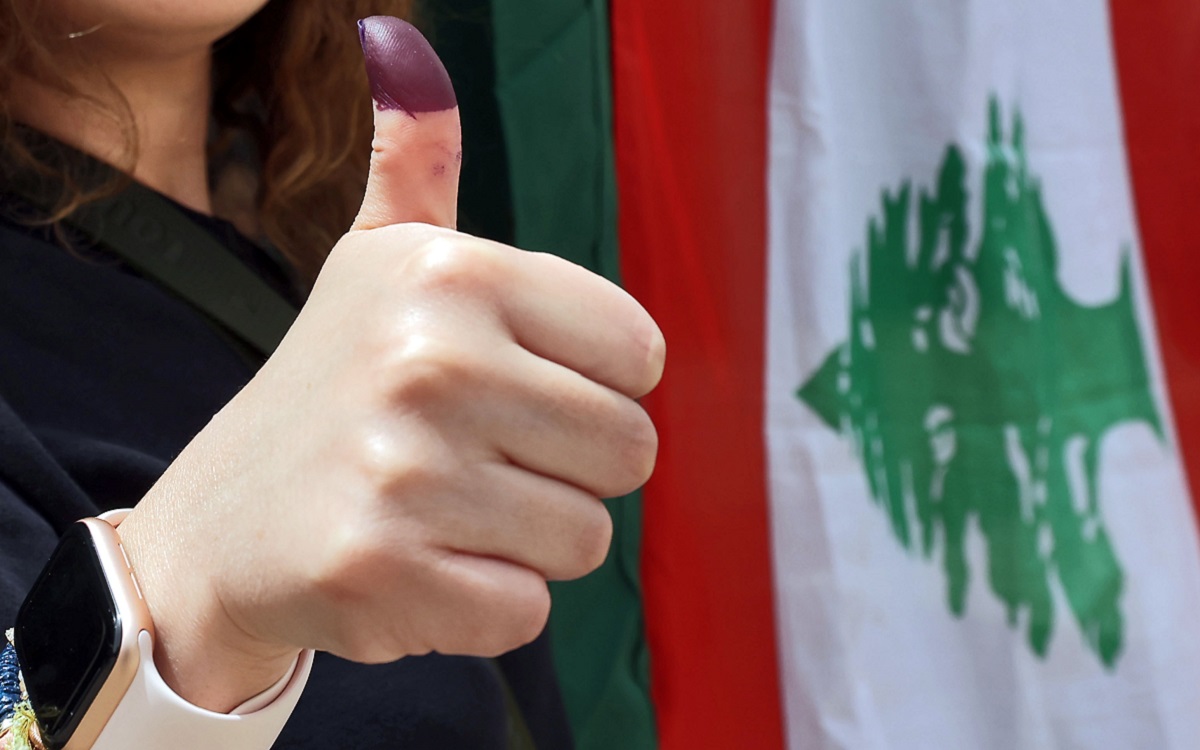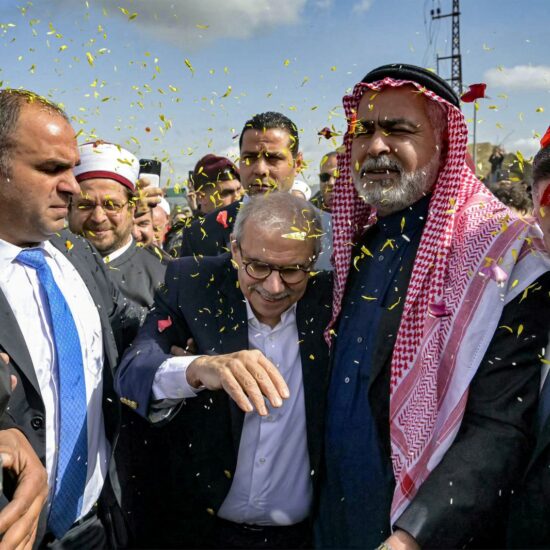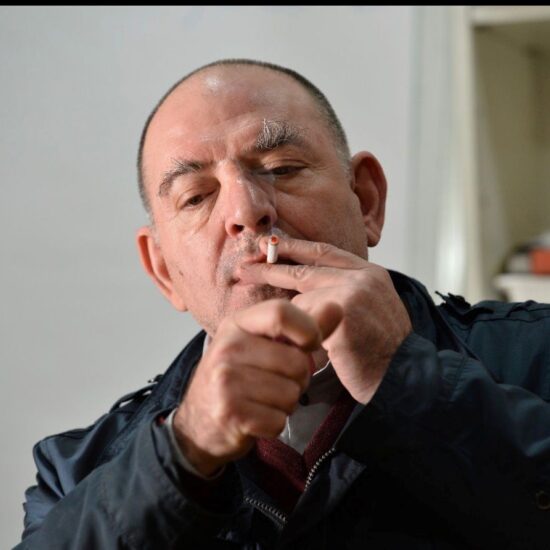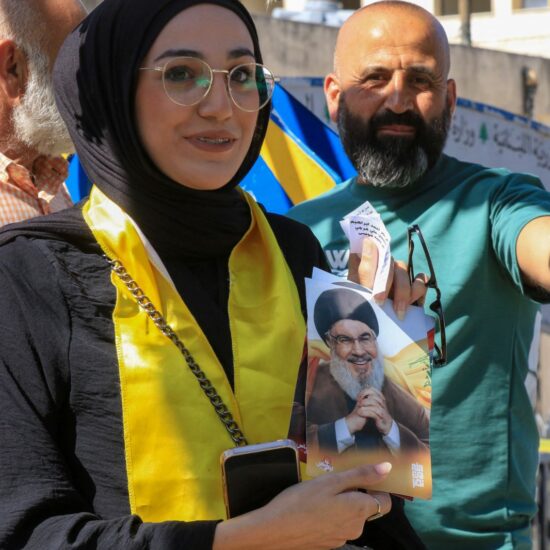
With a track record that is chock-full of achievements and an ambitious political agenda, expatriate Brigitte Khair, endeavors to win a seat in the parliament and turn things around.
Mastering diplomacy, development and government advisory, as well as having worked as a humanitarian with various UN agencies in Geneva and Iraq, 58-year-old Khair wants to relay her long-standing expertise and help her country get back on its feet.
Born in Lebanon, Khair, became part of the Lebanese diaspora around 1998 when she moved to New York for her UN career, to then settle in Geneva. Khair, who now lives between Switzerland and Dubai, said she played a dynamic role during the October 17 social movement and has recently returned to her homeland to grab a seat in the Lebanese parliament. She’s running for the upcoming elections in North III for one of the three Orthodox seats in Koura with the independent list Shamal al-Mowajaha, led by former MP Michel Moawad.
“It’s a man’s job”
A record-breaking number of 118 women are running for the elections this year, around a 37 percent increase compared to the number of women candidates in the 2018 elections. Although this tally might seem promising, when compared to the number of men candidates, the ratio is a staggering 16 to 84.
“For a woman to make it to decision-making positions in Lebanon it has to happen by accident or if someone related to her dies and she gets to inherit their seat or, for example, if their brother is a prime minister, she might also get a seat,” Khair pointed out. “It is always linked to men and never to merit or to proving one’s self.”
Despite the fact that women in Lebanon have been unable to break the “political glass ceiling,” with less than five percent of parliamentary seats being occupied by women in 2018, and despite Khair being told that holding a political position is a man’s job by residents of her district, Khair is determined to break that norm.
“What I think is going to be stopping women from making it into parliament is attitudes like that of Hezbollah who dictates what women should or should not do,” Khair added. “What they do is that they put one woman on their list, without really any consideration for her abilities – she will never be allowed to present any law. These passive women are not what we are after; we are after real participation.”
“Political families”
Various political dynasties have been dominating the Lebanese political scene since the country’s independence. Being the son of former President Rene Moawad, Michel Moawad is lambasted for descending from a political family and forming alliances with political parties such as Kataeb, whose claim of being part of the opposition is often questioned.
Rene Moawad, elected as the ninth president of the Lebanese Republic, was assassinated 18 days into his presidency in 1989 by unknown assailants. Michel Moawad’s mother, Nayla Moawad, is also a Lebanese politician who served in the National Assembly for almost two decades and was the Minister of Social Affairs for three years.
I don’t think there is any opposition in the world that is harmonious. Many candidates from my district tried to unite the lists but some groups refused and alienated others.
Launched in 2005, the Independence Movement was founded by Michel Moawad and became part of the March 14 Alliance – a coalition of political parties and independents united by their anti-Syrian stance formed following the assassination of former PM Rafik Hariri. The coalition emerged from the Cedar Revolution, a chain of protests that aimed to oust Syrian troops from Lebanon.
“They call them ‘political families’ as if that’s something bad,” said Khair, whose list, Shamal al-Mowajaha, of center-right views, calls for a free market economy. “In my opinion, there are a lot of political families in Lebanon but clean ones are very few and [Michel Moawad] does not coerce people or intimidate them to vote for him as others do.”
Scant unification among opposition groups has been reported. Some political groups refused to align with Moawad’s list accusing it of being part of the Lebanese political establishment.
“I don’t think there is any opposition in the world that is harmonious. Many candidates from my district tried to unite the lists but some groups refused and alienated others,” Khair said.
She added that her group frowned upon opposition lists that failed to present a clear stance on Hezbollah.
Electoral agenda
Khair expressed satisfaction and delight for being on Shamal al-Mowajaha list alongside candidates like Jowelle Howayek, who Khair described as having been a pivot during the uprising owing to her consistent street action and strategic political acumen. Howayek saw great potential in Khair as a politician and pressed her to run for office when the latter was providing links to policymakers and the international community and analyzing the political situation and positioning of the October 17 uprising to become a viable opposition with real impact.
Rachid Rahme, another candidate on the independent list, is esteemed by Khair who said he represents the revolution at the higher level – the thinkers and the strategists who can retrieve the country’s sovereignty and leverage its position and relationships with foreign countries.
View this post on Instagram
“We want to use our wealth of knowledge to bring about salvation for the country like we’ve done in the Cedar revolution – to actually rid ourselves of the clutches of yet another occupation that’s taking over Lebanon,” Khair said.
Valuing her country’s talents and skills, Khair recently founded a startup called “gigthree”, a digital platform that links high-level experts with governments and companies that need them. She aims to link Lebanese skills with calls abroad, a pathway that can be used to bring hard currency into the country without having to leave Lebanon.
A number of us are in fact intimated and feel like a suicide squad – all of us running against something very strong, terrorizing and very well-funded, funded by another country that is a dominant regional power.
Running for the elections independently, without belonging to a political party, Khair hopes her group could later form a new multi-confessional and multi-regional political party whose goals would propagate across the nation and extend to the diaspora.
“We want to get people in parliament who would stop the hemorrhaging and start actually engaging with the international community and the IMF,” Khair said. “We need to get some credibility back into the Lebanese political system so that we may have the necessary funds to restart the wheels of the free economy and give the people their monies back.”
Suicide squad against Hezbollah
Believing that the Iran-backed group Hezbollah is one of the most potent armed militias in the world, Khair’s three kids are panic-stricken considering their mother’s strong stance against the Shia political party. Khair aspires to sit in a parliament that’s courageous enough to refrain from having national dialogues with Hezbollah.
“We don’t want to cohabitate with an armed militia that is hijacking the country the same way traditional political parties have been sitting with them for so long,” Khair asserted. “A number of us are in fact intimated and feel like a suicide squad – all of us running against something very strong, terrorizing and very well-funded, funded by another country that is a dominant regional power.”
Even someone like my sister-in-law said she will only vote for me behind the curtain but she can’t be seen supporting me in public or else people would stop going into her shop.
The Lebanese opposition candidates, including some of those who dare to support them, have been encountering assault and threats from traditional parties’ loyalists. Khair is confident that some people will vote for her, but she knows she will not win. With the intimidation tactics people in her village are facing, it would be a surprise if she wins.
“Some people told me if they vote for me, they would lose their business,” Khair said. “Even someone like my sister-in-law said she will only vote for me behind the curtain but she can’t be seen supporting me in public or else people would stop going into her shop.”
“We think we have the power, the means and the tenacity to actually keep going without being intimidated,” Khair added, “Even if they attack us, even if they try to coerce and stop us from doing what we can, we will continue with who’s left.”
Being part of the diaspora, Khair believes in their role and substantial power to affect policy by using their international network to effectively voice their concern, renegotiate international agreements and advocate for Lebanese interests, such as the refugee crisis and UN resolutions.
Sally Abou AlJoud is a multimedia journalist with @NOW_leb. She is on Twitter @JoudSally.







